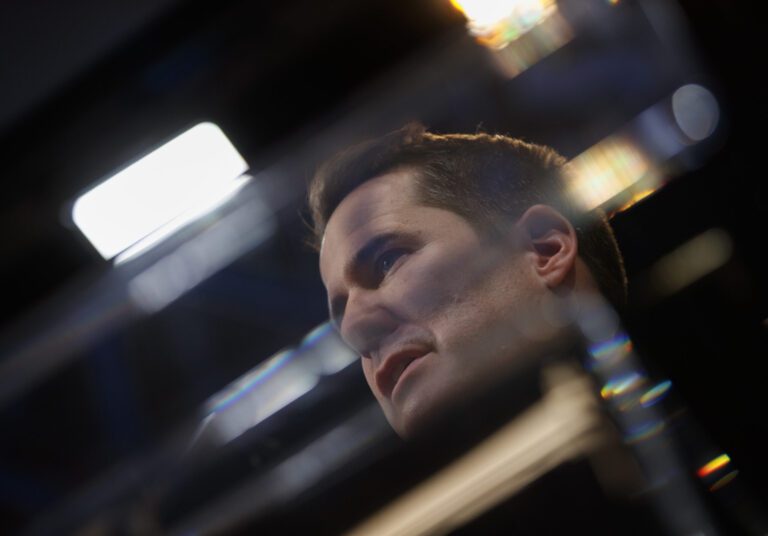The Shift in Democratic Leadership: A Call for a New Generation
As President Biden’s tenure unfolds, one of his lasting influences may be awakening the Democratic Party to the critical issue of gerontocracy. A significant number of older Democrats gearing up for re-election in 2026 are now confronting challenges that go beyond their political ideologies—they are being urged to reflect on their age and capacity to lead.
The Historical Context: Watergate Babies of 1974
The landscape of Democratic leadership has been significantly shaped by historical shifts. In the 1974 midterms, a group known as the “Watergate Babies” emerged, comprising younger Democrats who unseated conservative incumbents amid the turmoil of the Watergate scandal. Prominent figures from this era, such as Senator Gary Hart, Senator Patrick Leahy, and Senator Paul Tsongas, helped pave the way for a more progressive agenda within the party.
A Possible Repeat in 2026
Next year’s midterm elections could herald another seismic shift within the Democratic Party akin to the transformative events of 1974. Many older party leaders, including President Biden, are determined to remain in their positions, yet they face significant challenges from younger, more vibrant candidates.
Primary Challenges for Older Senators
Among the three Senate Democrats over age 70 seeking re-election, two are already facing challengers. A notable example is Senator Ed Markey of Massachusetts, who, at 79, is battling a primary challenge from Congressman Seth Moulton. Moulton’s campaign highlights the generational divide in leadership:
- Moulton’s Campaign Strategy:
- Begins with a jogging scene in a cemetery, symbolizing vitality.
- Features personal moments, showcasing his life as a father and veteran.
- Raises the argument against Markey maintaining his position at 80 despite being a respectable leader.
Moulton’s direct message emphasizes the need for fresh leadership: “We’re in a crisis,” he states, implying that now is the time for a new generation to step forward.
An In-Depth Look at House Challenges
The situation is even more pressing in the House of Representatives. Currently, out of the 51 Democrats over 70 contemplating a re-election bid, around 70% are up against younger primary challengers. These candidates are advocating for a change in representation, questioning their incumbents’ ability to stay relevant in today’s unpredictable political climate.
A Stark Comparison with Republicans
While older Democrats face a wave of challengers, the dynamics are different within the Republican Party. Among the 32 Republican House members over 70, only 53% are facing primary opponents. This presents a paradox, as the base of the Republican Party is generally older than that of the Democrats, yet the average age of Republican lawmakers is slightly lower.
Fundraising Success Among Challengers
Younger Democratic challengers are making headlines not just through their campaigns but also via impressive fundraising efforts:
- Luke Bronin, a former mayor from Hartford, has raised over $1.2 million against 77-year-old Congressman John Larson.
- Saikat Chakrabarti, vying against Speaker Nancy Pelosi, has garnered upwards of $600,000.
- Justin Pearson, challenging Congressman Steve Cohen, received $200,000 in just the first day of his campaign.
This financial backing underscores the urgency of their messages and the growing support for a new generation of leaders.
Rising Concerns Over Leadership Choices
The discussions around leadership aren’t limited to Congress. Governor Janet Mills of Maine recently announced her bid for a Senate seat against Republican Susan Collins, raising eyebrows among progressives. Critics within her party are questioning her timing and preference over left-leaning candidates like Graham Platner, who has pledged not to support Senator Chuck Schumer should he take office.
- Age Factor for Candidates:
- If elected, Mills would be 79 upon her swearing-in, prompting numerous comments on social media asking for a shift toward newer leadership.
Conclusion: A Party at a Crossroads
The upcoming elections signal a pivotal moment for the Democratic Party. With a significant number of older incumbents facing challenges from younger candidates, the future of the party may hinge on how effectively it navigates this generational shift. As the political landscape transforms, one question remains: will the Democratic Party embrace a new wave of leadership, or will it cling to established figures?
For more insights on political transformations, visit Brookings and explore the nuances of contemporary governance.


